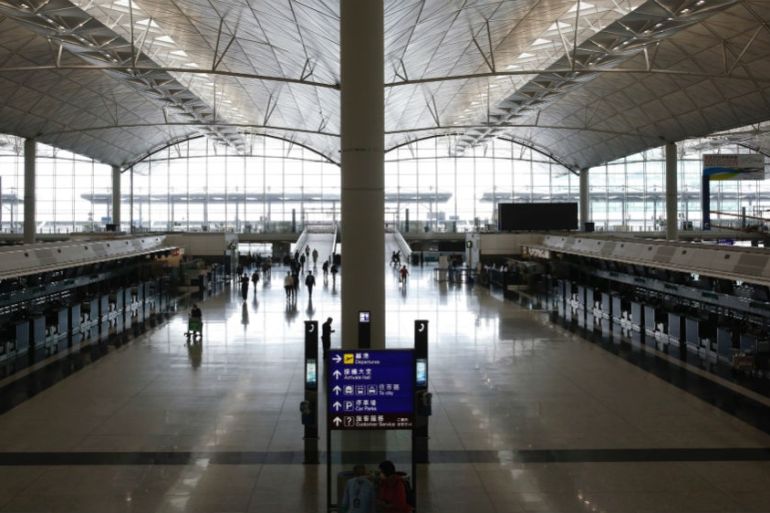Hong Kong suspends transit flights to most of world over Omicron
‘Asia’s World City’ continues descent into one of the most isolated urban centres on earth.

Hong Kong will suspend for a month transit flights from approximately 150 countries and territories considered high risk because of the coronavirus, deepening the global financial hub’s isolation.
The move comes as the city has seen about 50 cases of the fast-spreading Omicron variant since the end of last year.
Keep reading
list of 4 itemsChina’s crude oil imports drop for first time since 2001
Voices of concern at ASEAN over Hun Sen’s Myanmar visit
Latest COVID updates: Netherlands eases lockdown after four weeks
Prior to the outbreak, which authorities said could be traced back to two aircrew members of Cathay Pacific Airways, the city had had no local transmissions for over three months.
Hong Kong International Airport said in a statement on Friday that any person who have stayed in places classified as high risk by health authorities in the 21 days before travelling cannot transit through the city from January 16 until February 15.
The measure was taken “in order to control the spread of the highly infectious Omicron variant,” it said.
Hong Kong currently classifies more than 150 countries and territories as high risk.
Zero-tolerance
Last week, it banned incoming flights from Australia, Canada, France, India, Pakistan, the Philippines, Britain and the United States, including interchanges.
The Chinese-ruled city has followed mainland China’s policy in adopting a zero-tolerance stance towards local COVID-19 cases even as much of the world shifts towards living with the coronavirus.
In recent weeks, authorities have tightened quarantine restrictions on aircrew and reintroduced curbs on social life.
Fifteen types of venues, including bars and clubs, cinemas, gyms and beauty salons were ordered to close, while dining in restaurants is banned after 6pm. Primary schools and kindergartens have also shut.
The government is expected to announce later on Friday that the restrictions will be extended through the Lunar New Year holiday at the start of February